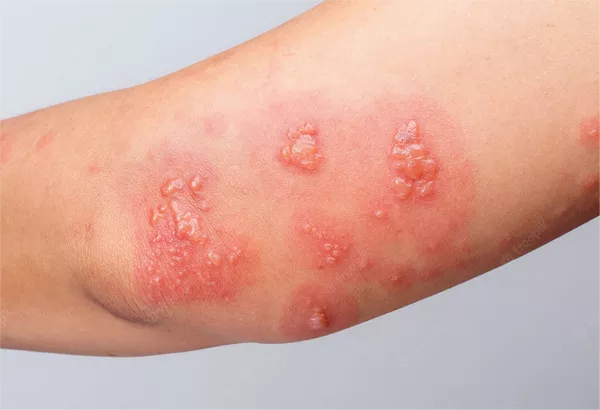Hair fungus, commonly caused by fungal infections like tinea capitis, can lead to hair loss, itchy scalp, and uncomfortable symptoms. This article will guide you through understanding hair fungus, its causes, symptoms, and the best treatments available.
Understanding Hair Fungus
What is Hair Fungus?
Hair fungus refers to infections that affect the scalp and hair. The most common type is tinea capitis, often called scalp ringworm. Despite its name, it is caused by fungi, not worms.
Causes of Hair Fungus
Fungal infections thrive in warm, moist environments. Several factors can contribute to the development of hair fungus:
Poor hygiene: Infrequent washing of hair and scalp can lead to a buildup of sweat and oil.
Close contact: Sharing personal items like hats, combs, or pillows can spread fungi.
Compromised immune system: Individuals with weakened immune systems are more susceptible.
Skin conditions: Pre-existing skin conditions can increase the risk of infections.
Symptoms of Hair Fungus
Recognizing the symptoms of hair fungus is crucial for early treatment. Common signs include:
Itchy scalp: A persistent itch that can lead to scratching.
Red patches: Inflammation or redness on the scalp.
Flaking or scaling: Visible flakes resembling dandruff.
Hair loss: Patches of hair may fall out, sometimes leaving bald spots.
Discolored hair: A change in the color of the hair shafts.
If you experience these symptoms, consult a healthcare professional for proper diagnosis and treatment.
Diagnosis of Hair Fungus
A healthcare provider will typically diagnose hair fungus through:
Physical examination: They will examine your scalp and hair.
Medical history: Discussing your symptoms and health history.
Laboratory tests: Sometimes, a sample of hair or scalp skin may be taken for fungal culture testing.
Best Treatments for Hair Fungus
Treating hair fungus involves antifungal medications and proper hair care practices. Below are the most effective treatment options.
1. Antifungal Medications
Over-the-Counter (OTC) Options
Ketoconazole Shampoo: This antifungal shampoo can help eliminate fungi on the scalp. Use it as directed, usually two to three times a week.
Selenium Sulfide Shampoo: This is another effective option that helps reduce fungi and relieve itching.
Prescription Medications
If OTC options are ineffective, your doctor may prescribe stronger medications, such as:
Griseofulvin: An oral antifungal medication that is effective for scalp infections. It is usually taken for several weeks to months, depending on the severity of the infection.
Terbinafine: This is also an oral medication that targets fungal infections and may be prescribed for resistant cases.
2. Topical Treatments
In addition to shampoos, your doctor may recommend topical antifungal creams or ointments to apply directly to affected areas. These include:
Clotrimazole: A cream that can be applied to the scalp.
Miconazole: Another topical antifungal that can help treat infections.
3. Home Remedies
Some home remedies may complement medical treatments. However, consult your healthcare provider before trying these:
Tea Tree Oil: Known for its antifungal properties, diluted tea tree oil can be applied to the scalp. Mix a few drops with a carrier oil and massage gently.
Coconut Oil: This oil has natural antifungal properties. Applying it to the scalp may help soothe irritation.
Apple Cider Vinegar: This can help restore the scalp’s pH balance. Mix equal parts of vinegar and water, apply to the scalp, and rinse after a few minutes.
4. Hair Care Practices
Proper hair care is essential for treating hair fungus and preventing recurrence. Consider the following tips:
Keep your scalp clean and dry: Wash your hair regularly with an antifungal shampoo.
Avoid sharing personal items: Do not share hats, combs, or towels to reduce the risk of spreading the fungus.
Use a clean towel: After washing your hair, use a fresh towel to dry your scalp.
Limit heat and humidity: Avoid excessive heat styling and try to keep your scalp dry, especially in hot weather.
5. Dietary Considerations
A healthy diet can support your immune system, which may help in combating fungal infections. Consider:
Probiotics: Foods like yogurt and fermented products can help maintain gut health and support immunity.
Vitamins and minerals: Ensure you are getting enough vitamins A, C, D, and E, as well as zinc, to support skin health.
Prevention of Hair Fungus
Preventing hair fungus is crucial, especially if you’ve experienced it before. Here are some preventive measures:
Practice good hygiene: Wash your hair regularly and keep your scalp clean.
Avoid damp environments: Try to keep your hair dry and avoid overly humid areas.
Wear breathable hats: If you wear hats, choose those made of breathable materials.
Regularly clean hair tools: Disinfect combs, brushes, and hair accessories regularly.
When to See a Doctor
If you suspect you have hair fungus, it’s important to seek medical attention. You should see a doctor if:
Symptoms persist: If over-the-counter treatments do not improve your symptoms within two weeks.
Severe itching or pain: If the itching becomes unbearable or if you experience significant pain.
Hair loss continues: If hair loss is worsening despite treatment.
Conclusion
Hair fungus can be uncomfortable and lead to hair loss if left untreated. However, with the right combination of antifungal medications, proper hair care, and lifestyle adjustments, it can be effectively managed. Always consult a healthcare provider for a proper diagnosis and personalized treatment plan.
By following the guidelines outlined in this article, you can take proactive steps to treat and prevent hair fungus, promoting a healthy scalp and hair. Remember, early intervention is key to a successful recovery.
Related topics:


























